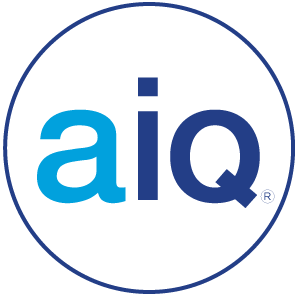When Copley Equity Partners (Copley) added AuctionIQ (AIQ) to their portfolio in 2022, they recognized the growth potential for the procurement consultancy that helps enterprises reduce their technology expenses. But an unexpected bonus is that Copley has now tapped AIQ to work its magic with Copley portfolio companies—reducing expenses, increasing profit margins, growing their valuations, and funding their growth initiatives.
Greg Sonzogni, operating partner at Copley, discussed how AIQ was able to engage and immediately drive value for Copley’s portfolio companies. “Very quickly, AIQ was able to uncover significant opportunities for expense reduction for two of our portfolio companies. AIQ ran its reverse auctions and negotiated dramatically lower enterprise technology costs.”

One success story is Tourmaline Partners, a trading solutions firm providing supplemental and outsourced services to investment managers, added to Copley’s investment portfolio in 2020. AIQ hosted a recent procurement auction that reduced Tourmaline’s cloud infrastructure expenses by a staggering 50 percent. That generated operating capital to enable the company to hire additional salespeople to continue its growth. Copley projects a potential increase in Tourmaline’s valuation by eight figures. “Cloud infrastructure is one of our most important operational components and biggest expenses,” said Aaron Hantman, CEO of Tourmaline. “We were overjoyed by the outcome. Not only did we cut our cost in half, but we did so without compromising quality, service, or most importantly, regulatory compliance.”
LJB, another Copley portfolio company that provides civil and structural engineering services, used AIQ to renegotiate and reduce its annual computer hardware expenses by more than 20 percent. LJB applied the cash savings to support its inorganic growth strategy, reducing the need for higher interest-rate debt. “Our engineering services require us to equip our team members with high-end computing solutions,” said Michael Derr, LJB’s executive vice president of operations and finance. “We were surprised at how competitive the market is among resellers of premium hardware. AIQ did a great job helping us optimize these costs, which allowed us to refocus this capital on our growth strategy.”
Companies Are Over-Paying for Enterprise Technology
Savings of the magnitude AIQ delivered for Tourmaline and LJB are common. According to AIQ analysis, companies are paying enterprise technology expenses that are 79 percent higher than market conditions warrant. Blake Wetzel, AIQ’s chief executive officer, insists it is not necessarily because contracts were poorly negotiated. “The competitive landscape for enterprise technology changes very quickly. Even good contracts, aggressively negotiated as recently as a year or two ago, should be inspected because the technology may have matured, or new competitors may have entered the market. Those factors yield high leverage for contract renegotiation.”
Wetzel says there are other factors that contribute to enterprises paying more than they need to for enterprise technology. For example, companies often have multiple vendors performing the same or similar services, so they fail to capitalize on volume discounts they could get through vendor consolidation. This is particularly common for companies that have undergone mergers and acquisitions. Also, AIQ finds that nearly two-thirds of companies have poorly monitored auto-renew contracts that can saddle a company with outdated pricing and can even result in a company continuing to pay for products and services that are no longer in use. Lastly, most companies suffer from the “expense creep” caused by SaaS vendors incrementally increasing their prices every year when the contract renewal is due.
The most powerful tool AIQ wields for cost cutting is the procurement auction. AIQ’s benchmarks show procurement auctions are twice as effective for price reduction as traditional techniques like RFPs and direct vendor negotiation.
What makes the procurement auction so successful? Wetzel explains that the secret is the combination of competition and transparency. In a procurement auction, multiple vendors are invited to compete against each other for the buyer’s business. A procurement auction is a reverse auction, so each new bid progressively drives the price lower. Bidding from all auction participants is transparent – participating vendors get real-time feedback on how they rank each time a competitor enters a new bid. This triggers them to compete by lowering their own bid. The combination of transparency and competition naturally compels suppliers to drive costs down well below their list prices and often well below standard discounts. A typical two-week auction involving a handful of vendors usually ends in a frenzy, with dozens of bids entered in the final hours.

Enterprise technology represents a large company expense. AIQ works with a broad range of categories, including hardware, software, SaaS, business outsourcing, telecommunications, technical services, billing software and services, cloud and data services, and network storage. Trimming the fat can return tens or hundreds of millions of dollars in operating capital to the business.
Procurement-as-a-Service
Why does it make sense to outsource procurement? First, the pace of technology innovation makes it extremely difficult for a company’s internal procurement staff to maintain deep knowledge of competitors, market dynamics, pricing, and licensing models. The second factor is capacity. It’s a tremendous amount of effort to work across multiple categories to analyze costs, identify good-fit vendors, and renegotiate contracts. This makes procurement-as-a-service a compelling model for many midsized and large enterprises.
“We were really impressed with the turnkey process,” said LJB’s Michael Derr. “AIQ analyzed high-level data from our ERP to quickly uncover the biggest opportunities for savings. They interviewed our stakeholders to collect specifications, prescreened vendors, ran auctions, and came back to us with ready-to-execute contracts. Their service minimized the workload of our busy team.”
Conclusion
Private equity firms are increasingly challenged to show rising valuations as the post-COVID boom subsides and the economy bogs down in higher interest rates and inflation. Procurement-as-a-service solutions, such as those provided by AIQ, enable companies to reduce spend, maximize efficiency, and harvest cash to fund growth strategies, all of which are important to PE.
“Private equity is focused on increasing valuation, and procurement-as-a-service certainly impacts this, along with many other factors that are vital to a business,” says Sonzogni. “AIQ helps companies increase their enterprise value, and this is critical to attracting PEs that buy and sell those companies.”
